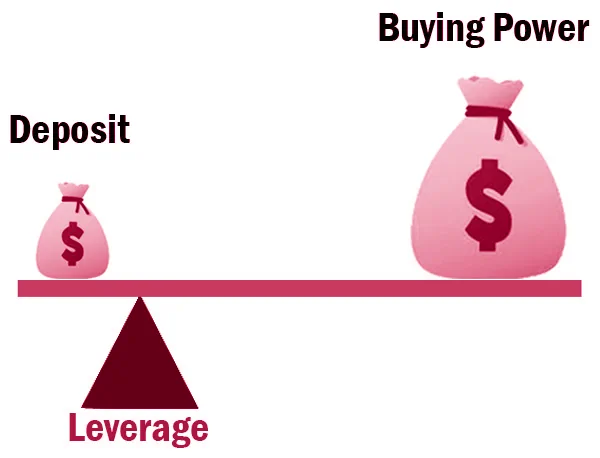What is leverage?
Leverage allows retail forex traders to open CFD positions in amounts that are multiples of their initial investment. Essentially, leverage is a loan that a trader takes out from his broker, allowing him to invest in currencies without putting up significant amounts of his own capital. And most importantly, you don’t have to repay this loan! Because the broker covers the risk of losing leveraged capital by opening a counter position minus your investment. We will describe how market orders are executed a little later, but now we will describe in more detail what leverage is.
Why leverage is necessary
So, initially only large financial institutions and individuals with significant capital could invest in the Forex market. This is because in order to make any meaningful profit from the relatively small daily changes in the price of currencies, a trader needs to invest a huge amount of capital - which is usually not available to retail traders.
In order to give almost everyone the opportunity to trade on the Forex market, brokers have introduced technology such as leverage. With its help, the broker increases your small trading position to the size of the minimum market lot and puts this contract on the market.
By using leverage, it only takes $1,000 to open a trade that would require a $100,000 investment. This allowed potential investors who previously could not meet the minimum requirements to enter the market to begin investing in currencies.

The amount of leverage is expressed as a ratio, for example, 1:1, 1:10 or 1:100. The size of trades a trader can open depends on the amount of leverage used and the amount of initial investment.
Benefits and risks of using leverage
As mentioned earlier, the use of leverage is beneficial for retail traders, especially if they have little investment capital. However, while using leverage can increase your potential profits, it also comes with some risk and can result in large losses.
Traders who open CFD positions with minimal capital but high leverage can quickly lose their investment as a result of even the smallest price changes. Since margin is required to back a leveraged position, if a trader chooses high leverage and only invests a small amount of capital, most (if not all of the capital) will be locked up in the account as margin. This means the following: if the price changes against the trader, he can lose all his invested capital as a result of one trade.
Therefore, it is very important that investors fully understand the principles of leverage and margin, as well as the structure of the Forex market, before opening their first trade. An investor also needs a sound risk management strategy, including using appropriate levels of leverage based on available capital and placing stop loss and take profit orders. Finally, it is recommended that beginners start trading with a demo account before investing real money, as this will allow them to learn how to navigate the market and develop their trading strategy, without any risk to their own capital.
We will talk about this in the following lessons.


